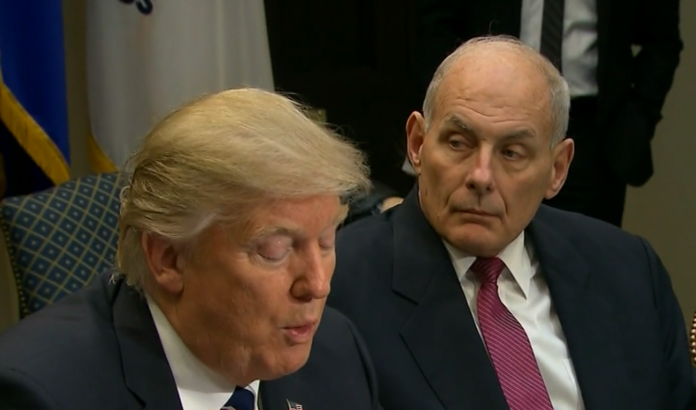High profile positions in government require security vetting using clearance procedures put in place for background checks on individuals set to work for the government. Such positions include the White House Staff Secretary position recently left vacant by Rob Porter, a top aide to Trump accused of domestic violence by two of his ex-wives.
The White House has been under fire following accusations that it knew about Porter’s transgressions and ignored them. It defended itself against the allegations by releasing a press statement which implied that Porter’s security clearance was still ongoing when his transgressions became public. Reacting to the statement, the FBI Director, Christopher Wray told a Senate Select Intelligence Committee that the FBI had concluded Porter’s background check in January, and handed the file to the White House a month before he resigned. Porter’s transgression was part of the findings in the file. The Senate Intelligence Committee is tasked with assessing security threats to America’s national security.
Genesis of the Clearance Procedure Overhaul
An overhaul of the security clearance procedure was in part John McConnell, National Intelligence Director’s recommendation after he acknowledged that the system is flawed. He made his sentiments while at the Senate Select Intelligence Committee with other Security heads on February 15.
John Kelly, the White House Chief of Staff has also been in front of the ‘firing squad’ as a White House employee tasked with overseeing the security clearance for top White House staffers. The task of firing Porter solely lied as his responsibility and his laxity to do so has faced criticisms from different parties especially the Democrats. Anonymous sources close to Trump and not at liberty to comment on the matter told the Associated Press that Trump was not happy with his Chief of Staff and is already underway to look for a replacement.
Kelly’s Memo
Following the progressive pressure against the White House, Kelly released a five-page memo acknowledging White House mistakes but tightened the screws on the FBI and the Justice Department to give more timely responses on background probes. Kelly asked the two agencies to flag critical information about White House staff before submitting the final file.
In the interests of an overhaul, Kelly’s strategy will limit interim clearances to 180 days with the prerogative of a 90-day extension if background checks don’t turn out substantial. The memo also recommended that all Top Secret and Sensitive Compartmented Information clearances pending since June last year be discontinued in a week.
The White House’s move to overhaul the clearance procedure seems to be a strategic move to save face from allegations thrown at it in the past week.




